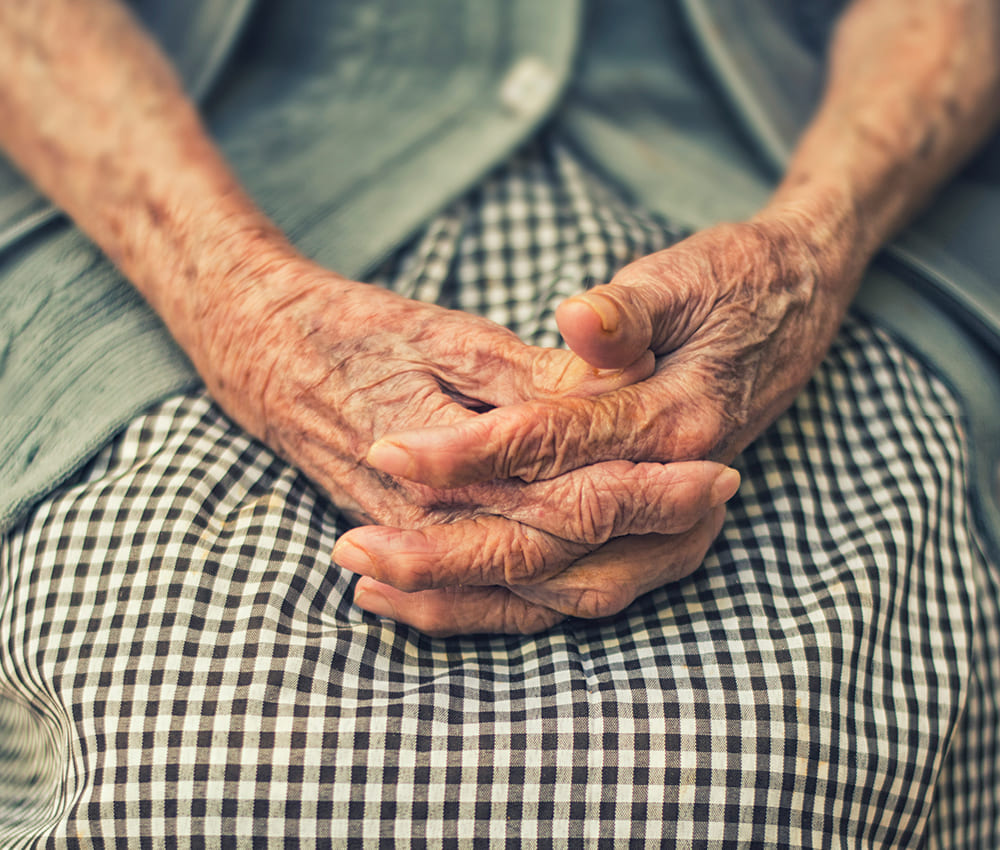Loss of appetite and changes in eating habits are common challenges for individuals with dementia and Alzheimer’s. These changes can be distressing for caregivers and family members, as proper nutrition is crucial for overall health and well-being. This comprehensive guide explores the various reasons why dementia and Alzheimer’s patients may stop eating and provide practical solutions and strategies to ensure they receive adequate nourishment and maintain a healthy diet.

Christopher Ravn
Key Takeaways
1. Loss of appetite and changes in eating habits are common challenges for individuals with dementia and Alzheimer's.
2. Several factors contribute to appetite loss in dementia patients, including cognitive impairment, sensory changes, medical conditions, medication side effects, and emotional factors.
3. When dementia patients stop eating, it's important to create a calm and comfortable environment, offer familiar foods, divide meals into smaller portions, and seek professional help from a dietician or speech therapist if needed.
Table of Contents
1. Why Do Alzheimer’s And Dementia Patients Stop Eating?
2. What Can Help To Encourage Appetite In Dementia Patients?
3. What Happens When Dementia Patients Stop Eating?
4. Why Do People With Late-Stage Dementia Stop Eating And Drinking?
5. What Exact Stage Of Dementia Do Patients Stop Eating?
6. What To Do If Dementia Patients Stop Eating?
7. Health Implications Of Not Eating In Dementia Patients
8. Frequently Asked Questions About Why Do Dementia Patients Stop Eating?
Why Do Alzheimer’s And Dementia Patients Stop Eating?
Alzheimer’s and dementia patients may stop eating due to a myriad of reasons. Let us look at some possible reasons as to why this takes place.
The patient suffers from cognitive decline, thus leading to memory loss and confusion, which leads to them forgetting how to eat, being unable to recognize food, being confused about meal times, and having difficulty following instructions. Thus, it may lead to frustration, anxiety, and a loss of mood to eat.
The patient may also face challenges in swallowing, such as dysphagia, which makes eating a chore. This is because they find it difficult to chew their food, are unable to swallow or clear their throat, risk choking, and feel dehydrated due to weight loss and not enough nutrition. This may lead to the patient wanting to eat soft foods.
Another factor could be changes in taste and smell, which cause them to lose appetite. For instance, Alzheimer’s or dementia patients may lose their sense of taste and smell, be unable to tell the difference between flavors, have a change in food preference, and be unable to enjoy foods that were once appetizing to them.
The reason behind the appetite loss in Alzheimer’s and dementia patients is due to depression, issues with swallowing, side effects from the medication, and a lack of physical exercise or social interaction.
What Causes Appetite Loss In Dementia Patients?
It is common for dementia patients to have a loss of appetite. This may be due to various factors, such as the disease, other medications, side effects of the medication and emotional factors. Thus, understanding what causes this is important to ensure that the dementia patient receives adequate nutrition.
Dementia may alter appetite due to the effects it has on the brain. That is, because of the cognitive impairment, a dementia patient may lose the ability to understand hunger and lose their desire to eat. There may also be changes in taste and smell, which may make food less appealing and thus cause people to lose their ability to recognize familiar foods. They may also have issues with eating due to their motor impairments. This makes it difficult for them to chew, swallow, and even use utensils.
Dementia patients may also lose their appetite due to medical conditions such as constipation, gum disease or toothaches, urinary tract infections, pneumonia, and other medical conditions such as diabetes, heart disease, or thyroid issues.
Emotional factors also play a role here in terms of the dementia patient suffering from depression, which lessens their interest in eating, and anxiety, which causes them to feel nauseous and lose their appetite.
Why Do Alzheimer's Patients Stop Eating?
Alzheimer’s patients stop eating because of various factors such as physical changes in the mouth, swallowing issues, which may be due to the disease’s progression, depression, loss of interest in activities they once enjoyed, and changes in their eating habits.
- Pica which causes the patient to see food as non-edible items. They may consider it as paper, dirt or something distasteful. This is because their cognitive abilities have started to decrease. Patients may incur the risk of choking, aspiration, or intestinal blockages.
- Hyperphagia is when the patient is always hungry and wants to eat. This causes them to overeat and it is challenging for caregivers to manage. It causes the patient to gain weight and suffer from digestive issues.
What Can Help To Encourage Appetite In Dementia Patients?
- Ensure that there is a variety of food to stimulate hunger, such as fruits, vegetables, and whole grains.
- Offer familiar food that the dementia patient enjoys, thus providing a sense of comfort.
- Provide food in small portions to avoid them feeling overwhelmed
- Use a sense of smell, such as aroma, to stimulate appetite. Freshly prepared bread and roasting vegetables help to provide a sense of appeal.
- Respect the dementia patients’ autonomy.
- Provide adaptive utensils, such as large spoons or forks
- Gently feed them if the patient needs to be fed
- Ensure that mealtime is a positive and enjoyable experience. Play some music or their favorite shows for them to enjoy.
- Encourage participation in meal preparation
- Share meals as a family
- Establish a daily routine for meals or snacks
- Ensure that this information is communicated to the caregiver and healthcare provider.

What Happens When Dementia Patients Stop Eating?
- The patient may only speak a few words or phrases and often gibberish.
- May have a limited understanding of the language
- May become confused and disoriented in the afternoon and evening.
- May become agitated or restless due to pain
- May become less mobile and unable to move.
We Believe Prioritizing Brain Health Enhances Your Quality Of Life
Get to know our team, our mission and how our EVY LIGHT® can provide you and your loved ones with a fuller life, letting you breathe a little easier.
Why Do People With Late-Stage Dementia Stop Eating And Drinking?
People with late-stage dementia stop eating and drinking because they start to lose interest in food and drink, develop dysphagia, which makes it difficult for them to swallow foods and drinks, have reduced energy in their bodies, and experience confusion, agitation, and restlessness during mealtimes.
Late-stage dementia may have severe impacts on bodily functions such as prolonged lack of nutrition leading to weight loss and a weakened immune system; dehydration can cause fatigue and confusion; a weakened immune system makes it harder for the patient to fight infection; and reduced mobility such as being bedridden or wheelchair-bound.
At the end-of-life phase, it is common for dementia patients to stop eating and drinking. This is because as the body’s energy starts to decrease, they may not want much food or drink. This is how the body starts to shut down including the digestive system as this is the natural progression of the disease. Thus, it is crucial to understand 10 signs death is near dementia
What Exact Stage Of Dementia Do Patients Stop Eating?
- Mild Cognitive Impairment (MCI) is when the patient has mild memory loss but is still able to function normally.
- Early-stage dementia is when the patient loses memory, is confused, and finds it difficult to communicate.
- Moderate-stage dementia is when the patient may experience significant memory loss, have issues with communication, and have issues performing daily tasks.
- Severe-stage dementia is when the patient may experience memory loss, difficulty in communication, and issues performing daily tasks.
- End-stage dementia is when the patient experiences physical decline, and loss of motor skills, and depends on the caregiver.
Eating issues take place at many stages of dementia but they are more common in the later stages. In the early stages, patients may experience loss of appetite, difficulty chewing, using utensils, and having issues with mealtime routines. In the moderate stages, the dementia patient may experience increased difficulty eating and swallowing, loss of appetite and weight loss, and being dehydrated and unable to feed themselves. When the patient does not want to eat, it is a sign that they have progressed further in their disease and are thus reaching the end of life.
The duration of a dementia patient not wanting to eat is dependent on a few days or weeks without food or water, several weeks or months with very little food and water, and several months to a year with some food and water.

Enhance your brain performance through the power of light.
Comfortable and easy to use 40Hz light therapy to support and improve your brain function.
View Our LightWhat To Do If Dementia Patients Stop Eating?
- Serve food that the dementia patient is familiar with and enjoys.
- Divide larger meals into a smaller, more manageable portion
- Ask a dietician for help or a speech therapist who can handle dementia care for support.
How Long Does A Dementia Patient Live When They Stop Eating?
It varies when it comes to the life expectancy of a dementia patient who stops eating and drinking. Moreover, a dementia patient may live a few days without food or water but this is not the absolute timeframe for a person who has reached their end-of-life care.
Various reports have stated that the life expectancy of someone with Alzheimer’s disease or dementia may range from 8 to 10 years. This is from the time of diagnosis and may vary depending on the patient’s overall health and stage of diagnosis. It is also imperative to understand how long do the 7 stages of alzheimer’s last as they progress.
There are a few factors that influence the life expectancy of a dementia patient who stops eating or drinking, the patient’s age, type of dementia such as Lewy body, Alzheimer’s, stage of dementia, general health, and nutrition and hydration status. Thus, some factors that may influence life expectancy without food or water are life care, effective pain management, respiratory issues that impact life expectancy, and life-threatening infections.
Health Implications Of Not Eating In Dementia Patients
The health implications of not eating for dementia patients lead to malnutrition. This leads to a myriad of health issues, such as a weakened immune system, pressure sores or bedsores, the risk of hospitalization due to pneumonia and urinary tract infections, and a reduced quality of life for dementia patients.
Dehydration is another implication for dementia patients and this is typically seen during the advanced stages of the disease. This leads to confusion and disorientation, an increased risk of infections, reduced cognitive function, and an increased risk of hospitalization due to complications.
As for end-of-life concerns, it is important to address issues about suffering and natural decline. Some considerations to take into account are: mouth care to reduce symptoms of dry mouth; comfort food and fluids to reduce hunger, pain management for those who are suffering from pain; providing emotional support; and validating the patient’s and caregiver’s needs.
Will My Loved One With Dementia Die From Starvation Or Dehydration?
As your loved ones with dementia reach the end of life, their body goes into a natural process of shutting down. This is because the body starts to decline in vital function, which includes its ability to process and absorb food. In the last stages, it is difficult for the body to regulate hunger. Thus, patients with advanced stages of dementia often do not eat or drink, which leads to malnutrition and dehydration.
At this stage, it is important to consider palliative care to provide comfort and relief from the pain and stress of the illness. It continues throughout life by managing symptoms of pain and nausea, providing emotional and spiritual support, ensuring that the patient’s needs are met, and providing a calm and peaceful environment.
Learn What Others Have Experienced with EVY Light
See how others have achieved a sharper mind by activating their gamma brainwaves in combination with maintaining a healthy lifestyle.
Frequently Asked Questions About Why Do Dementia Patients Stop Eating?
What Causes Dementia Patients To Stop Eating?
Why Would An Alzheimer's Patient Stop Eating?
An Alzheimer’s patient may stop eating due to challenges in swallowing, such as dysphagia, which makes eating a chore. This is because they find it difficult to chew their food, are unable to swallow or clear their throat, risk choking, and feel dehydrated due to weight loss and not enough nutrition. This may lead to the patient wanting to eat soft foods.









































